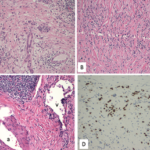Among other topics, Dr. Strand plans to give technical definitions of biosimilars and interchangeability, discuss what is known about switching from reference products to biosimilar products, discuss approved rheumatology biosimilars and explore the current lack of overall biosimilar uptake in the U.S.
The recent rollout of various biosimilars in rheumatology may ultimately increase prescribing choices. In other cases, however, it may limit physician and/or patient choice, based on insurance reimbursement restraints. Currently, 31 different biosimilar products are approved by the U.S. Food & Drug Administration (FDA) for the treatment of rheumatic conditions, including 10 different biosimilars of adalimumab.
Theoretically, biosimilars may provide a means of overall savings in the healthcare marketplace. Biosimilar development partly relies on already established efficacy and safety data from the original reference product. Thus, overall development costs are lower for biosimilars, and, theoretically, these savings could be passed on to consumers or payors. Biosimilars have led to large price reductions and impressive increases in availability in many countries, especially developing and middle-income countries.
However, the costs of biosimilars vary widely in the U.S. In the U.S., pharmacy benefit managers will play a large role in determining ultimate availability and cost.
“Whether cost savings will be passed on to patients largely remains a mystery to us,” Dr. Strand says.
IgG4-Related Disease

Dr. Stone
IgG4-related disease (IgG4-RD) is a rare, immune-mediated fibroinflammatory disorder first recognized as a unique disease in 2003. John H. Stone, MD, MPH, the Edward A. Fox Chair in Medicine at Massachusetts General Hospital and professor of medicine at Harvard Medical School, Boston, will explore key lessons learned about the condition.
Dr. Stone notes that IgG4-RD can present similarly to many other conditions rheumatologists evaluate. “It is sometimes quite difficult, for example, to differentiate IgG4-RD from ANCA-associated vasculitis, Sjögren’s disease, [SLE], sarcoidosis, aortitis and others,” he says. “Thus, if rheumatologists believe they are not seeing this condition, it is likely they are either missing it altogether or mistaking it for another disease, as I did for many years.”
Although no therapies are specifically approved by the FDA for IgG4-RD, the disease is treatable. Moreover, Dr. Stone notes, the treatment of IgG4-RD differs substantially from that of many conditions in the differential diagnosis.
“Therefore, a thorough knowledge of the subtleties and nuances of this condition is very important for all practicing rheumatologists,” he says.


